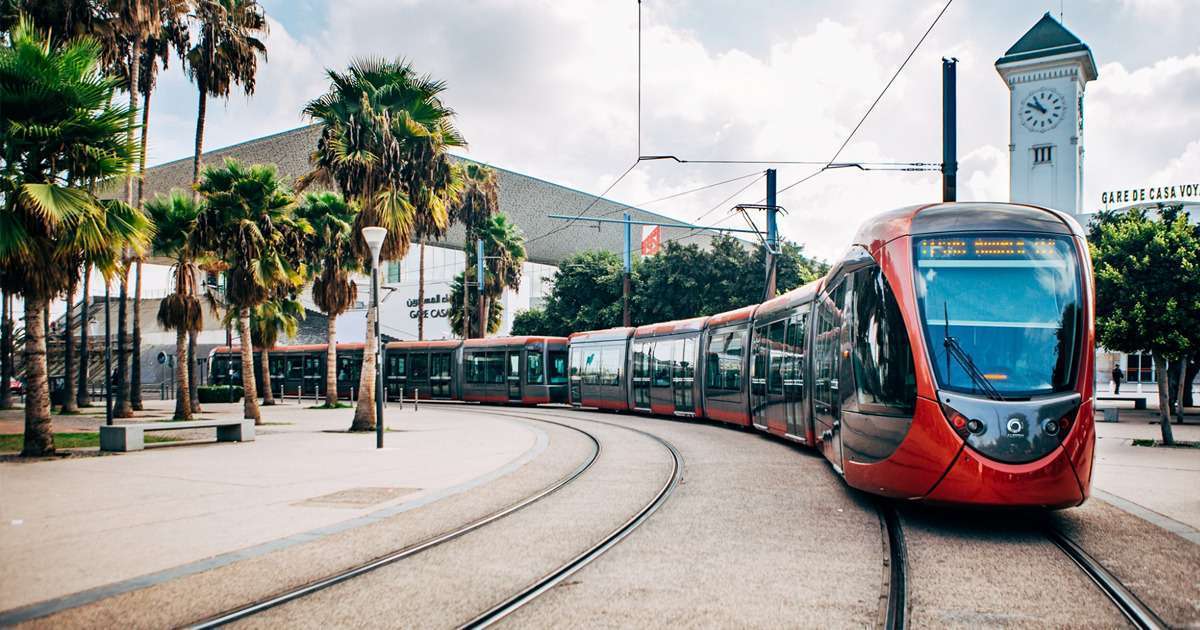Casablanca’s urban mobility is on the verge of a major transformation, spearheaded by Casa Transport. Established in 2009, this local development company is tasked with facilitating the movement of Casablanca’s residents. In pursuit of innovative solutions, it is currently working on a roadmap focused on the development of new mobility services. Carpooling, car-sharing, bicycles, motorcycles, scooters: the era of Mobility-as-a-Service (MaaS) unfolds in the economic capital of Morocco. Let’s delve into this digital revolution offering complementary alternatives to traditional public transportation…
> How to launch an effective MaaS solution in a territory?”>
Casablanca, a fertile ground for Urban Transition
With nearly four million inhabitants, Casablanca is currently the largest metropolis in the Maghreb in terms of population. Like most major cities, it faces various transport challenges. These challenges were revealed through technical studies conducted under the Urban Mobility Plan by Casa Transport. Notably, there’s a low usage of public transportation due to inadequate coverage. A suboptimal service quality, coupled with a surge in private car usage, leads to traffic congestion during peak hours.
A Roadmap and Five Challenges
To address these transportation issues, Casa Transport is exploring several solutions through an ambitious roadmap aimed at “overall improvement in the quality of urban mobility.” The roadmap highlights five major challenges. Firstly, the need to provide an attractive and quality service…
The quality of the service depends not only on the quality of access to it (frequency and regularity of a carpooling line, pricing of the service, availability of a bike at the station, type of electric bike technology, secure parking facilities, etc.), but also on its intermodal integration with the conventional public transport network.
cASA tRANSPORT
Secondly, creating an environment conducive to the emergence of a competitive market for new mobility operators. It emphasizes the importance of cooperation between the public and private sectors. The third challenge involves financial aspects. Casa Transport will consider possible subsidies for infrastructure such as cycling lanes, appropriate signage, and parking zones.
Towards service-oriented Mobility
The fourth challenge is interoperability in ticketing, emphasizing better coordination “between the network of conventional collective transports and new services.” This is envisioned through the rise of “multimodal” digital platforms, known as Mobility-as-a-Service (MaaS). The final and crucial challenge is the establishment of a new regulatory framework, an integral part of the MaaS approach.
This process requires prerequisites like data openness, coordination with the private sector, a strong institutional framework capable of regulating service usage, and suitable regulations.
casa transport
Perspectives and Envisaged Scenarios
As the next step, Casa Transport must address crucial questions for the success of this innovative project. What strategy to adopt for the development of new mobility services? How to attract private offers while organizing existing actors? What contractual model would be most suitable for Casablanca? Analyzing global economic models, understanding the operations of various services, and conducting interviews with local stakeholders will be essential in defining the prerequisites to attract sector players to Casablanca. An in-depth study that we will closely follow…
> Access to the first global mapping of over 200 MaaS experts”>





